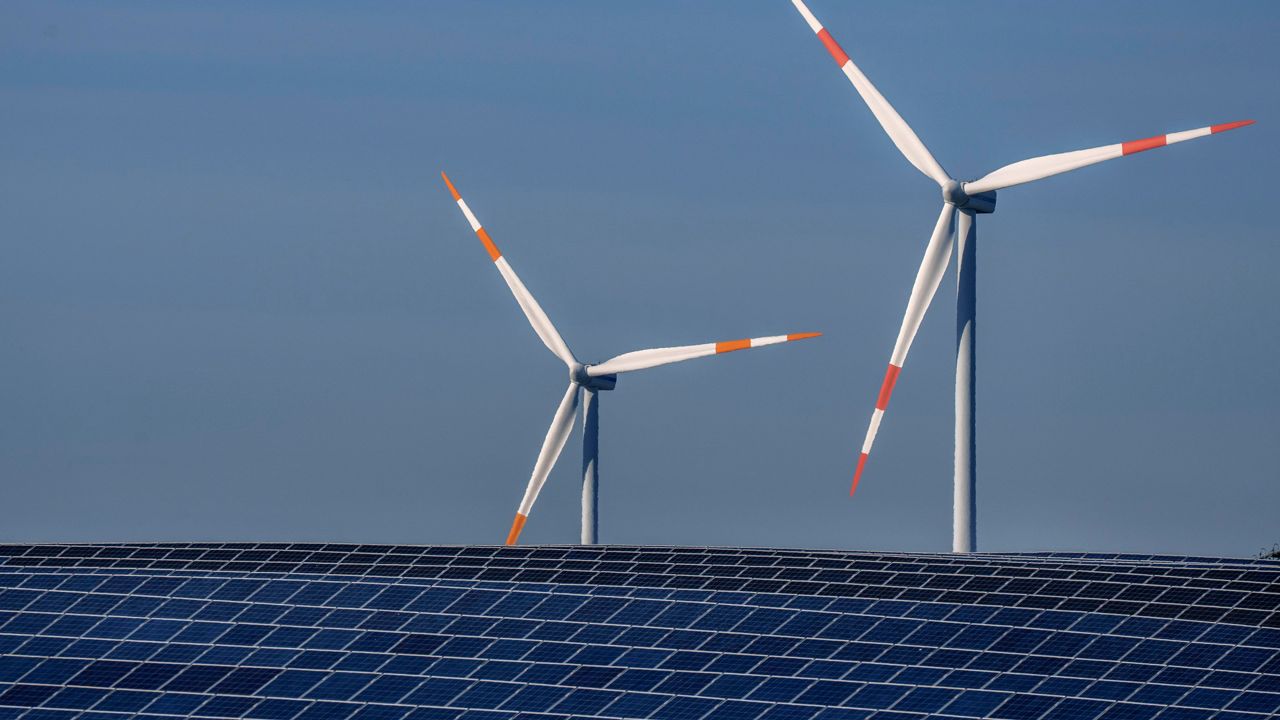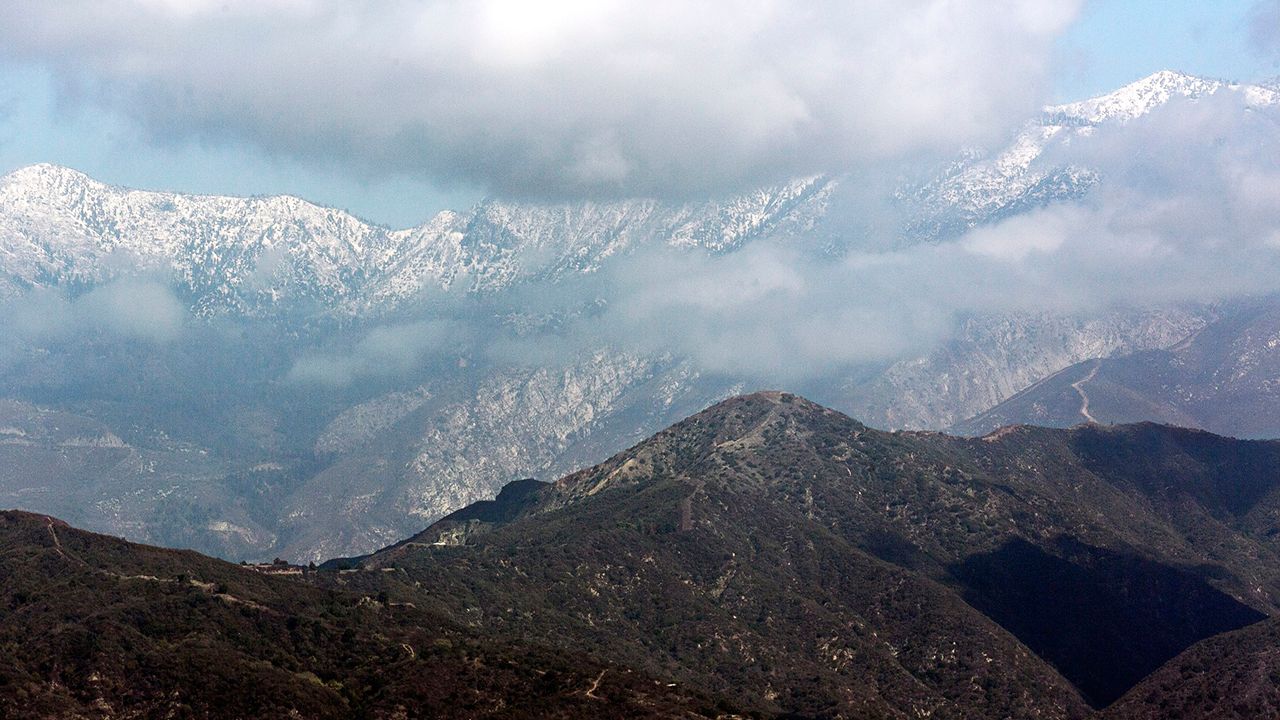MADISON, Wis. — When it comes to the climate crisis, Gregory Nemet has some good news and some bad news.
“The climate problem is getting worse,” said Nemet, a professor at UW-Madison’s La Follette School of Public Affairs. “But the solutions are getting better.”
What You Need To Know
- UW's Gregory Nemet, who worked on the latest IPCC report, said the findings challenge us to act quickly on climate change
- The report calls for contries to get to net zero emissions in the next 30 years to limit global warming
- Clean energy has made major progress, and is now a cheap alternative in our energy transition
- There is hope for climate mitigation, but more action is needed to secure the future, Nemet said
That was a big conclusion from a recently released report by the United Nation's Intergovernmental Panel on Climate Change. Nemet was a lead author on the IPCC report, which brought on scientists from across the globe to take a look at our options to mitigate global warming.
The report stresses that if we want to contain climate change in the coming years, it’s now or never.
“We are at a crossroads,” IPCC Chair Hoesung Lee said in a release. “The decisions we make now can secure a liveable future.”
But the findings also offer some hope for how we can contain the climate crisis, Nemet explained. Here, we break down some of his takeaways from the “interesting and intense process” of working on the report.
We need to cut greenhouse gas emissions — and do it fast
Global greenhouse gas emissions have kept rising in recent years, and in the 2010s reached their highest levels in human history, according to the latest report.
And we’re already seeing the impacts of the climate crisis — from wildfires to rising seas, severe storms to mass extinctions, as earlier IPCC research pointed out.
“The bad news is, yeah, these climate damages are happening. They're going to become more frequent unless we really make a big change,” Nemet said. “And if you look at the last 10 years, we haven't been making the changes we needed to.”
To reach the global goal of limiting warming to 1.5°C, greenhouse gas emissions have to be on the decline by 2025, according to the report. And by the early 2050s, the world needs to reach net zero in its carbon emissions, researchers found.
A problem with greenhouse gases is that they stick around in the atmosphere for a long time, even compared to other pollutants, Nemet explained. Once carbon dioxide is released, it can stay in the atmosphere for centuries.
So the emissions we’ve already sent into the atmosphere are not going away anytime soon. And that doesn’t leave us a lot of wiggle room to stay under the 1.5°C tipping point, Nemet explained.
“We're already at 1.1,” he said. “There's just not that much room to keep putting greenhouse gases into the atmosphere if we're going to keep the climate safe.”
Clean energy has made progress
The IPCC findings aren’t all doom and gloom, though.
“On the other side, on the more optimistic side of it, there are clear signs of progress that weren't true when the last report came out in 2014,” Nemet said.
For one, clean energy has gotten much cheaper in recent years, Nemet pointed out. Since 2010, solar energy costs have dropped 85%, and wind power costs have dropped 55%, according to the report.
Nemet, who wrote a book about the economics of solar power, said that growing markets helped drive those energy costs down and make solar power the cheapest energy source we have. Those economies of scale — where “the more you make them, the cheaper it gets to make the next one” — can also help drive down costs for other clean energy.
The report also highlighted the role of carbon removal technologies that can capture greenhouse gases from the atmosphere. These options are important because some sectors — like aviation, industry and agriculture — will be hard to get all the way to zero emissions, Nemet said.
“If we're going to have some emissions from those places, we have to counterbalance them somewhere else with something negative,” he said.
But carbon removal can’t be the whole solution. “We need to do both,” he said: Cut the emissions we’re sending into the atmosphere and suck out the carbon that’s already there.
We have options to reduce global emissions
Turning the tide on climate change will mean major transitions on many levels, the report stresses.
“We need behavioral change,” Nemet said. “We need people to start making different choices about where they live, how they live, how they move around, what they eat.”
In addition to getting our energy from clean sources, we can also work on using less energy overall, Nemet said. That can mean personal choices like eating plant-based diets, using shared transportation and cutting down to smaller living spaces.
Many of these changes aren’t just good for the planet — they’re good for people’s wellbeing, too, the report found.
But the report stresses the need for action beyond individual choices.
To limit global warming, entire industries — from construction to agriculture to transportation — need to cut their reliance on fossil fuels, the report stresses. That could involve building with more sustainable materials, increasing green space in cities and adding electric vehicle infrastructure.
And governments will have to up their investments in a major way to keep warming below 1.5°C, according to the report. Policies and funding for mitigating climate change have been uneven so far, the report says — but we need more ambitious action for the future.
“Everything needs to get cleaned up, but we've got the tools available,” Nemet said. “And so it's really a matter of making the investments, making the changes to get things moving faster than they have been.”
There are reasons for hope in our climate future
Though global emissions have kept rising, the IPCC report found that 18 countries have been able to reduce their greenhouse gas emissions for a decade or more.
Those are long-term declines — not just blips from unusual circumstances like, say, a pandemic, Nemet said. And they’re another encouraging change from the previous report in 2014.
“We wouldn't have said eight years ago that the cost of renewable energy is falling and is cheaper than fossil fuels. Now we're saying that,” Nemet said. “We wouldn't have been able to say that many countries have actually reduced their emissions.”
Now, we need to get the rest of the countries on the decline too, and do it all much faster, he said.
In this way, the IPCC report leaves us with a big challenge. The timeline for cutting global emissions is a quick one, and will require major changes to happen right away.
But Nemet said that looking at the progress we’ve already made, and seeing the growing number of people devoting themselves to fighting climate change, makes him hopeful that we can achieve that transformation.
“People don't appreciate just how much has actually happened, and how much is happening,” Nemet said. “So that actually is really optimistic.”









